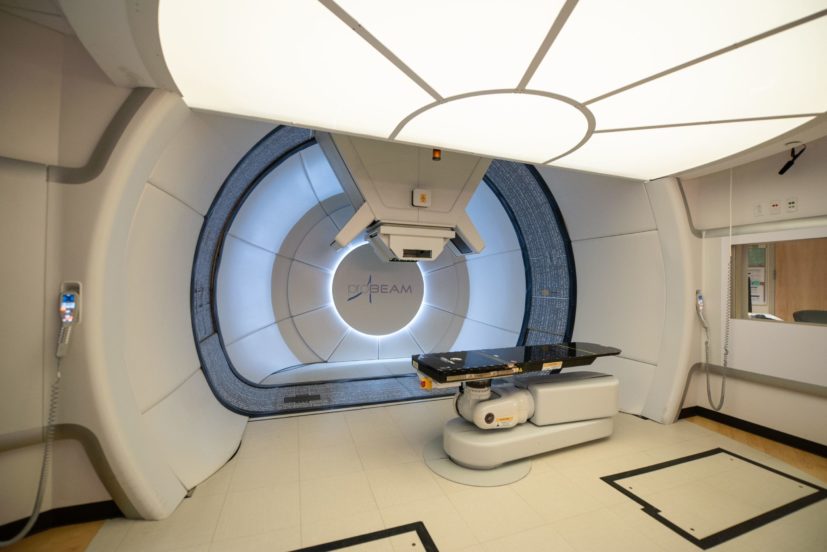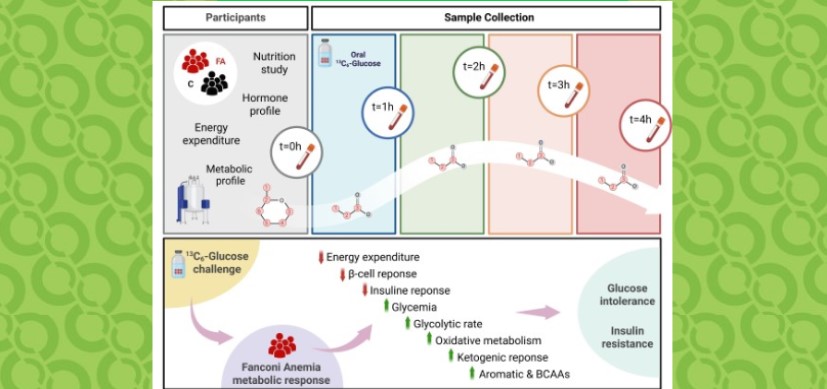Study: Proton Therapy Excels at Treating Cancers of Head and Neck
Research By: Anthony Mascia, PhD
Post Date: March 26, 2024 | Publish Date: Feb. 29, 2024

Proton therapy can be an effective and less-toxic alternative to conventional radiation therapy for patients with advanced cancers of the head and neck, according to a study conducted by researchers at the Proton Therapy Center on the Liberty Campus of Cincinnati Children’s.
The study’s authors report that proton therapy is effective because it can be delivered with a degree of precision that spares surrounding normal tissue and therefore causes fewer side effects than X-ray based photon therapy.
“When using proton therapy, there was a significant reduction (75%) in the production of small extracellular vesicles, commonly known as exosomes, from cancer cells, which usually suppress the immune system,” the authors wrote in the study, which was published online Feb. 29, 2024, in Cancers.
X-ray based photon therapy did not reduce exosome production, though exosomes from both proton therapy and X-ray based photon therapy had similar inhibitory effects on immune cells, according to the study, which was titled “Proton Treatment Suppresses Exosome Production in Head and Neck Squamous Cell Carcinoma.”
The authors included: Cincinnati Children’s researcher Anthony Mascia, PhD, director of medical physics at the Proton Therapy Center; Matt Sertorio, PhD, of the Division of Oncology; Marat Khodoun, PhD, of the Division of Immunobiology; Trisha Wise-Draper, MD, PhD, of the Division of Oncology; Michael Lamba, PhD, of the Proton Therapy Center; research assistant Maria Lehn of the Division of Rheumatology; Laura Conforti, PhD, and Ameet Chimote, PhD, of the University of Cincinnati College of Medicine; research assistant Jay Bhati of the University of Cincinnati; and Scott Langevin of the Larner College of Medicine at the University of Vermont.
“Our findings suggest that proton therapy might be better at reducing the immune-suppressing effects of cancer exosomes by producing fewer of them,” the authors concluded.
Head and neck squamous cell carcinoma is the sixth-most prevalent cancer worldwide and among the most immunosuppressive, the authors stated.
“Effective cancer treatment relies on the ability of effector T and natural killer cells to infiltrate tumors and perform their effector functions,” the authors noted. “However, these immune functions are suppressed in (head and neck squamous cell carcinoma). Circulating exosomes from … patients have been shown to suppress the activities of local and peripheral effector T and (natural killer) cells.”
The researchers noted that proton and/or photon irradiation studies were conducted on primary cell cultures established from surgically resected tumors obtained from three de-identified patients treated at the University of Cincinnati Medical Center. Informed consent was obtained from the patients.
The authors thanked personnel at Cincinnati Children’s and its Proton Therapy Center for the proton irradiation experiments.
The work was funded by the Marlene Harris Ride Cincinnati Breast Cancer Research Fund and the Head and Neck Cancer Discretionary Fund pilot grants awarded by the University of Cincinnati Cancer Center, a Research Innovation/Pilot Grant awarded by the University of Cincinnati College of Medicine, and NIH Grant Number 5 R21 CA277341-02 awarded to Laura Conforti, and Marlene Harris Ride Cincinnati Breast Cancer Research Fund, the Wiltse Family Fund for Head and Neck Cancer, Marlene Harris Ride Cincinnati Pilot Grant Award, and Brandon C. Gromada Pilot Grant Award awarded by the University of Cincinnati Cancer Center to Dr. Trisha M. Wise-Draper.
| Original title: | Proton Treatment Suppresses Exosome Production in Head and Neck Squamous Cell Carcinoma |
| Published in: | Cancers |
| Publish date: | Feb. 29, 2024 |
Research By








